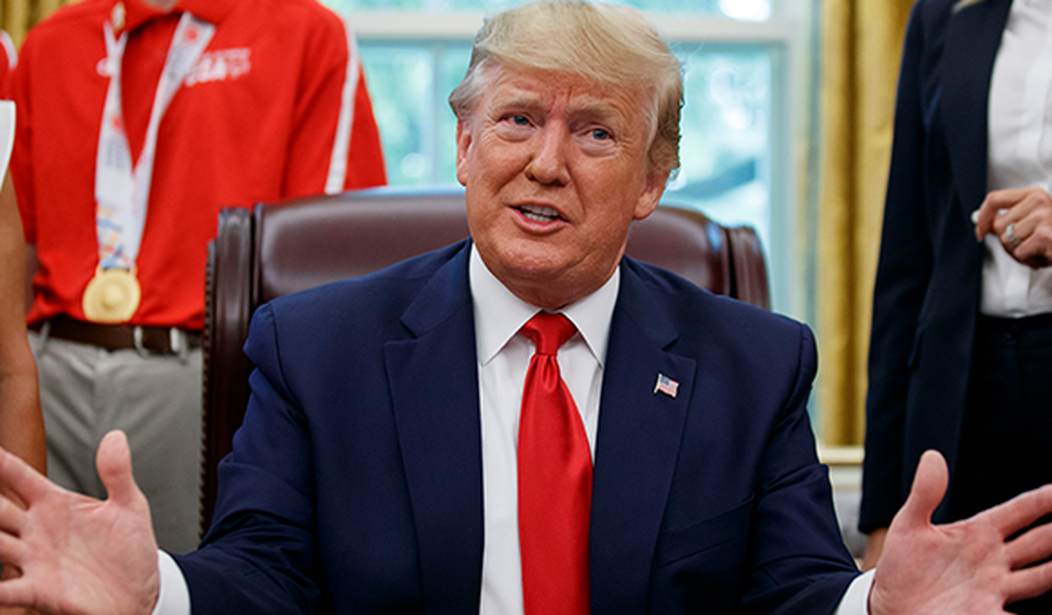There is one interest that almost all elected officials in Washington, D.C., share. It does not matter what state they come from. It does not matter what party they belong to. It does not matter whether they serve in the House, Senate or White House.
They want to be reelected.
A key tactic they often employ to achieve this shared strategic aim is sometimes celebrated by apologists as "bipartisanship."
In practice, bipartisanship less often involves members of both major parties coming together to serve some great national interest and more often involves them coming together to serve their personal political interests as members of Washington's elected class.
The latest example: the Trump-Pelosi debt-and-spending deal.
The basics of the deal are this: Over the next two fiscal years, Congress will pass and President Trump will sign spending laws that increase discretionary federal spending by $320 billion above the levels Republicans agreed to in a 2011 legislative deal to raise the debt limit they made with then-President Barack Obama. That 2011 deal essentially said, "We will increase the debt today and pay for it tomorrow."
Now that it's tomorrow, the new Trump-Pelosi deal says, "No, we won't."
The Trump-Pelosi deal also says there will be absolutely no limit on how much new debt the federal government can accumulate between now and July 31, 2021.
It also says that the appropriations bills Congress enacts to reach these new higher levels of federal spending and debt will not include any "poison pills."
"Congressional leaders and the administration agree that, relative to the FY 2019 regular appropriations Acts, there will be no poison pills, additional new riders, additional CHIMPS" -- changes in mandatory program spending -- "or other changes in policy or conventions that allow for higher spending levels, or any nonappropriations measures unless agreed to on a bipartisan basis by the four leaders with the approval of the president," says a summary of the deal published by House Speaker Pelosi's office.
Recommended
What does banning "poison pills" do? It gives the leadership of the minority party in either chamber the power to preemptively remove provisions they do not like from spending bills without needing to have a recorded vote on an actual amendment to do so.
It stops public fights over federal spending programs that the base of one party likes but the base of the other party hates.
Why should Congress have debates -- and votes -- on things like that in an election year?
Is not a bipartisan deal in favor of business as usual -- or business as usual plus $320 billion -- a better way to go?
No.
In the first nine months of this fiscal year, the federal government spent a record $3,355,970,000,000 while running a $747,115,000,000 deficit. Under President Trump, the federal Treasury is now doling out dollars faster (even when adjusted for inflation) than it did in fiscal 2009, when President George W. Bush signed legislation to bailout failing banks and President Barack Obama signed a stimulus law aimed at lifting the economy out of recession.
In its most recent long-term budget outlook, the Congressional Budget Office put the escalating federal debt in historical perspective.
"Federal debt held by the public has ballooned over the past decade," the CBO said.
"At the end of 2007, federal debt stood at 35 percent of GDP, but deficits arising from the 2007-2009 recession and subsequent policies caused debt to grow sizably in relation to the economy over the next five years," said the CBO. "By the end of 2012, debt as a share of GDP had doubled, reaching 70 percent."
"The upward trajectory has generally continued since then," said the CBO, "and debt is projected to be 78 percent of GDP by the end of this year -- a very high level by historical standards. (Over the past 50 years, such debt has averaged 42 percent of GDP.)"
"It has exceeded 70 percent of GDP during only one other period in U.S. history -- from 1944 to 1950 following the surge in federal spending that occurred during World War II," the CBO concluded.
The Trump-Pelosi debt-and-spending deal is a short-term political win for the Washington establishment of both parties and a long-term loss for the American people. Rather than serve a great national interest, it attacks a great national interest: the solvency and future prosperity of this nation.
It will not help Make America Great Again. It will make America bankrupt sooner.
Terence P. Jeffrey is the editor in chief of CNSnews.com.

























Join the conversation as a VIP Member